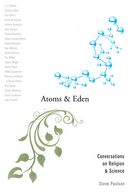For at least the past few years I didn’t really talk to anyone or ask for interviews the past couple of NYCC’s. This year you’ll see a drastic change in that philosophy, and I hope you’ll all enjoy that! Over this year’s NYCC, I spoke with Robert McGuire, who is the Editor-in-Chief of Gen Manga, ... Read more
Viewing: Blog Posts Tagged with: Eden, Most Recent at Top [Help]
Results 1 - 4 of 4
Blog: (Login to Add to MyJacketFlap)
JacketFlap tags: Interview, Robert McGuire, Audio, Eden, NYCC 2014, Manga Article, GEN Manga, 2014 New York Comic Con, Anomal, Indie Manga, Manga Industry talk, Add a tag
Blog: An Awfully Big Blog Adventure (Login to Add to MyJacketFlap)
JacketFlap tags: teen fiction, Financial Times, Eden, Anna Wilson, Joanna Nadin, www.acwilsonwriter.wordpress.com, www.annawilson.co.uk, category collapse, Gillian Tett, Add a tag
Blog: Read, Write, Repeat. (Login to Add to MyJacketFlap)
JacketFlap tags: Eden, Book reviews, Picture Books, Non-fiction, Kid reviews, Add a tag
 Most people today can’t remember a time when women weren’t allowed to vote.
Most people today can’t remember a time when women weren’t allowed to vote.
Marching with Aunt Susan (Peachtree, 2011), written by Claire Rudolf Murphy and illustrated by Stacey Schuett, takes young readers — and their parents — back to the days when Susan B. Anthony was leading the suffrage movement that would eventually lead to women having the right to vote in 1920.
The book follows Bessie, a girl who already sees some inequity in how she and her brothers are treated. For instance, why can’t she hike with her father?
What makes his book interesting is that Bessie really existed and really met and corresponded with Susan B. Anthony.
So what did a a girl living in 1896 think of the campaign for women’s votes?
Let’s hear from Eden, today’s guest reviewer.
———————–
Today’s reviewer: Eden
Age: 8
Things I like to do: Draw. Dance. Swim. Play soccer.
This book was about: How women wanted to vote and some men didn’t want them to.
The best part was when: Bessie got to meet Aunt Susan and help out with the people in the factory who couldn’t go to school. I also liked the newspaper articles at the front and the back of the book.
I was surprised when: Her dad didn’t let her go hiking. Just boys got to.
This book taught me: That a long time ago, women couldn’t vote.
Three words that best describe this book are: “Vote.” “Women.” “Brave.”
My favorite picture in the book is: When they are marching with the sign. And, when Bessie helps paint the sign with her friend, Rita. I like how you can see the brush strokes in a lot of the pictures.
Other kids reading this book should watch for: What’s happening in the present and what happened in the past.
You should read this book because: It teaches you stuff about the past. It also has some really good pictures. And, it’s based on real people.
———————–
Thank you, Eden!
If you’d like to learn more about Claire Rudolf Murphy, visit her website.
If you’d like to learn more about Stacey Schuett, visit her website.
Add a CommentBlog: OUPblog (Login to Add to MyJacketFlap)
JacketFlap tags: podcast, steve, dawkins, richard dawkins, paulson, comment, atoms, eden, steve paulson, To the Best of our Knowledge, goodall, Add a tag
What do scientists say about the “soul”? How does Richard Dawkins answer the question “why are we here?” In Part 2 of this series on religion, Steve Paulson (of NPR fame) reflects on the biggest questions in the ongoing science vs. religion debate. Part 1 can be found here.
Want more of The Oxford Comment? Subscribe and review this podcast on iTunes!
Featured in Part 2:
Steve Paulson, Executive Producer of To the Best of our Knowledge and author of Atoms and Eden


exclusive interviews from world famous atheist Richard Dawkins and chimpanzee advocate Jane Goodall



[…] Publishing | Robert McGuire of GEN Manga talks about his company’s evolution; they started out publishing a digital manga magazine but have now switched over to print graphic novels. [Organization Anti-Social Geniuses] […]